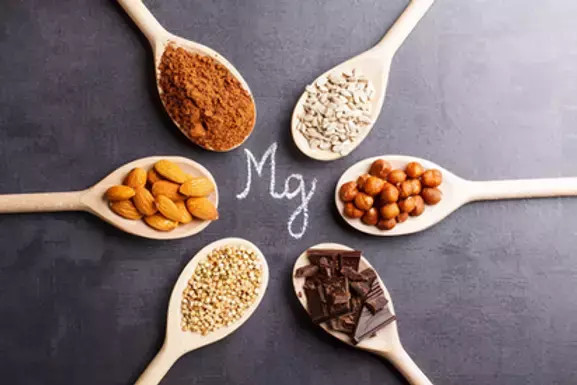
Magnesium has been gaining attention in recent years—and for good reason. This powerhouse mineral is involved in over 300 chemical reactions in the body, influencing everything from energy production and muscle function to heart health and stress management.
Yet, magnesium deficiency is one of the most common nutritional deficiencies in developed countries. Why? Our modern lifestyle—filled with processed foods, stress, and environmental factors—drains this essential mineral from our bodies, leaving many of us unknowingly deficient.
Let’s dive into why magnesium matters, signs of deficiency, and how you can get more of it through food and supplements.
Are You Depleting Your Magnesium Levels Without Realizing It?
Certain habits and lifestyle choices drain magnesium from your body, even if you think you’re eating a balanced diet. Here are some common culprits:
Drinks That Deplete Magnesium
- Sodas & Carbonated Beverages – Contain phosphates that bind to magnesium, making it unavailable to your body.
- Coffee, Tea, & Caffeinated Drinks – Stimulate the kidneys to excrete extra magnesium, regardless of whether your body needs it.
- Alcohol – Acts like a diuretic, increasing magnesium loss through urine.
Dietary Choices That Lower Magnesium
- Processed & Sugary Foods – Not only lack magnesium but also trigger its excretion through the kidneys.
- Low-Magnesium Diets – Many modern foods lack magnesium due to soil depletion and food processing.
Stress & Medications That Drain Magnesium
- Chronic Stress – Increases levels of cortisol & adrenaline, which deplete magnesium over time.
- Certain Medications – Diuretics, birth control pills, heart medications, and asthma drugs can reduce magnesium levels.
How Do You Know If You’re Magnesium Deficient?
Magnesium plays a vital role in nerve function, muscle health, and energy production. Deficiency can lead to a wide range of symptoms, including:
Neurological Symptoms:
- Anxiety, irritability, difficulty concentrating
- Fatigue, memory problems
- Insomnia or poor-quality sleep
Muscular Symptoms:
- Muscle cramps, spasms, twitches
- Weakness, tremors, difficulty swallowing
Cardiovascular Symptoms:
- Irregular heartbeat, high blood pressure
- Chest tightness, coronary spasms
Metabolic Symptoms:
- High blood sugar levels
- Calcium & potassium imbalances
If you experience any of these symptoms, it might be time to increase your magnesium intake.
What Type of Magnesium Should You Take?
Not all magnesium supplements are created equal! Here’s a breakdown of different types and what they’re best for:
Magnesium Citrate: aids digestion, reloeves constipation
Magnesium Glycinate: Improves sleep, relieves muscle tension
Magnesium Malate: Boost energy, helps with chronic fatigue & fabromyalgia
Magnesium L-Threonate: Supports brain function, memory and cognitive health
Magnesium Chloride: Used topical sprays & creams for muscle relaxation
Magnesium Sulfate (Epsom salt): Absorbed through the skin for relaxation & detox
Tip: If you’re looking for a highly absorbable form, Magnesium Glycinate is one of the best choices.
How to Get More Magnesium From Food
Since soil depletion has reduced magnesium in food, it’s essential to focus on organic and whole-food sources:
- Leafy Greens: Spinach, kale, Swiss chard (blanch before eating for better absorption)
- Nuts & Seeds: Almonds, cashews, pumpkin seeds
- Whole Grains: Brown rice, quinoa, whole wheat
- Avocados: A delicious source of magnesium and healthy fats
- Dark Chocolate & Cacao: A tasty magnesium boost (choose 70% or higher cacao)
- Fatty Fish: Wild-caught salmon, mackerel
- Dairy Products: Yogurt, cheese (preferably organic or local)
- Sea Vegetables: Nori, wakame, dulse
Did You Know? Magnesium can also be absorbed through the skin! Using magnesium oil, lotions, or Epsom salt baths is a great way to boost levels without relying on digestion.
How to Choose the Best Magnesium Supplement
With so many options on the market, how do you pick the right one?
- Look for High Bioavailability – Magnesium Glycinate, Citrate, or Malate absorb best.
- Check for Third-Party Testing – Ensures purity and quality.
- Avoid Fillers & Additives – Choose clean, minimal-ingredient formulas.
- Consider Your Needs – Do you need it for stress, digestion, or energy? Pick accordingly.
Need help choosing the best magnesium for your needs? As both an acupuncturist and holistic nutritionist, I can guide you toward the right supplement for your body.
Final Thoughts: Magnesium is Essential for Vibrant Health
Magnesium isn’t just another supplement—it’s a fundamental mineral your body needs to function at its best. Whether through food, supplements, or topical applications, ensuring optimal magnesium levels can improve sleep, reduce stress, support heart health, and prevent muscle cramps.
If you’re unsure whether you’re getting enough, let’s talk! I’d love to help you find the best magnesium solution for your health and lifestyle.
Reach out today to book a consultation!





